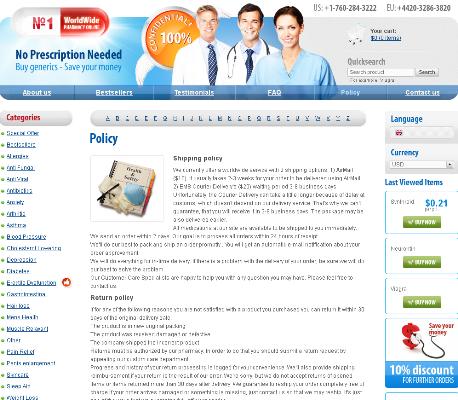Diflucan Vs. Other Antifungal Medications
Diflucan: Mechanism of Action and Uses
Fluconazole, marketed under the name Diflucan, operates by inhibiting the enzyme lanosterol 14α-demethylase, crucial for fungal cell membrane synthesis. This disrupts the production of ergosterol, a vital component of the membrane, leading to increased cell permeability and ultimately the death of the fungal cell. Diflucan is versatile, treating conditions like vaginal candidiasis, systemic candidiasis, and cryptococcal meningitis. Its ease of use as a single-dose oral medication makes it appealing for patients and healthcare providers alike.
| Conditions Treated | Mechanism of Action |
|---|---|
| Vaginal candidiasis, systemic candidiasis, cryptococcal meningitis | Inhibits lanosterol 14α-demethylase, disrupting ergosterol production |
Comparisons with Topical Antifungal Treatments

When comparing oral Diflucan with topical antifungal treatments, several notable distinctions emerge. Diflucan, an oral medication, works systemically by inhibiting fungal growth throughout the entire body. This approach is particularly effective for treating systemic or deep-tissue fungal infections, which topical treatments may fail to reach. In contrast, topical antifungals are applied directly to the skin, making them suitable for localized infections such as athlete’s foot or ringworm.
Another key difference lies in the duration of treatment and onset of relief. Users often notice quicker symptom relief with topical treatments, as they act directly at the site of infection. However, Diflucan offers the advantage of a shorter overall treatment period for many conditions, sometimes requiring only a single dose.
Lastly, patient preferences and ease of use play a vital role. Topical treatments necessitate consistent application, which can be cumbersome and messier compared to the simplicity of taking a pill. Long-term adherence can be better with Diflucan due to its convenience, especially for individuals with busy lifestyles or those who find it challenging to maintain a topical regimen.
Diflucan Vs. Ketoconazole: Efficacy and Side Effects
Diflucan is often lauded for its effectiveness in treating a broad range of fungal infections, including those that are systemic. Many users find Diflucan to be highly effective, often requiring a simpler dosing regimen. On the other hand, Ketoconazole is another potent antifungal medication but frequently comes with a higher risk of adverse effects like liver toxicity. Patients might prefer Diflucan due to its relatively mild side effect profile, making it a favorable option particularly for long-term treatments.
Comparing User Experiences and Testimonials

Users often highlight the convenience and effectiveness of Diflucan in treating fungal infections. Many appreciate that it requires just a single oral dose, unlike topical treatments that necessitate prolonged application. Patient reviews commonly note rapid relief from symptoms, such as itching and discomfort, within days of taking Diflucan.
In contrast, some users report experiencing side effects, including mild headaches and stomach upset. Despite these minor issues, the majority of testimonials suggest a high satisfaction rate, emphasizing the medication's ease of use and quick results.
Moreover, individuals who have tried other antifungal medications frequently express a preference for Diflucan due to its streamlined treatment regimen.
While experiences can vary, consistent positive feedback from Diflucan users highlights its widespread acceptance and reliability as an antifungal treatment in real-world scenarios.
Cost Comparison: Diflucan and Other Options
When considering the cost of antifungal treatments, Diflucan (fluconazole) stands as a noteworthy option. Generally prescribed as an oral medication, it is often favored for its single-dose regimen which makes it highly convenient. While the upfront cost of Diflucan might appear higher than that of topical treatments, it can sometimes be more cost-effective in the long run due to its efficacy and speed of action, which may reduce the need for prolonged treatment.
Additionally, generic versions of Diflucan are available, which can significantly lower the cost. Here is a comparative snapshot of Diflucan versus other antifungal options:
| Medication | Average Cost per Treatment |
|---|---|
| Diflucan (Fluconazole) | $50 |
| Generic Fluconazole | $20 |
| Topical Antifungal Creams | $10 - $30 |
| Ketoconazole | $15 - $25 |
Employing affordable and effective antifungal treatments, like Diflucan and its generics, can provide patients with options that suit both their medical needs and budgetary constraints.
Specific Case Uses and Doctor Recommendations
Diflucan, a widely recognized antifungal medication, is often reserved for treating more severe or systemic fungal infections, such as cryptococcal meningitis or invasive candidiasis. Physicians recommend it when topical treatments fail or when deeper tissue involvement is diagnosed. One case involved a patient with recurring vaginal yeast infections who, despite multiple over-the-counter remedies, only found relief with Diflucan.
Patients with compromised immune systems, such as those undergoing chemotherapy or living with HIV/AIDS, are particularly advised to use Diflucan for its efficacy in preventing opportunistic fungal infections. Healthcare professionals often consider patient-specific factors such as age, health history, and potential drug interactions when prescribing Diflucan, underlining its critical role in tailored antifungal therapy.
Doctors consistently highlight the importance of adhering to prescribed dosages of Diflucan, emphasizing its ability to clear infections efficiently when used correctly. Long-term and prophylactic uses are sometimes necessary in chronic or recurrent fungal conditions, validating Diflucan's place in a robust antifungal treatment plan.



